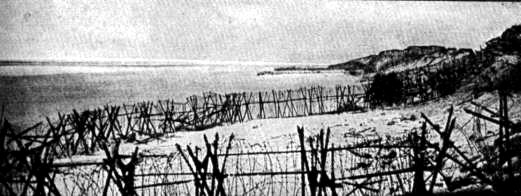Originally posted by Lorizael
How did the trenches first come about? That is, what was the other side doing while one side was building trenches?
How did the trenches first come about? That is, what was the other side doing while one side was building trenches?
With the widespread adoption of breach loading rifles entrenching on encampment became more routine, at least in the British army.
 . Though I doubt any nation had the organization to pull off such a large invasion back in those days. But why couldn't it be done exactly? I'm beginning to think the generals in ww1 were just bad. It worked in Korea more or less (the chinese joining in didn't help).
. Though I doubt any nation had the organization to pull off such a large invasion back in those days. But why couldn't it be done exactly? I'm beginning to think the generals in ww1 were just bad. It worked in Korea more or less (the chinese joining in didn't help).





Comment